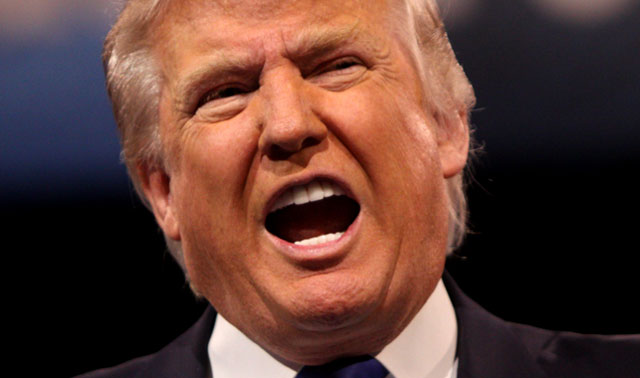
The 2016 presidential race was a powerful illustration of the influence that Internet services have to shape the national political conversation. Yet in the end, many of the people involved in technology didn’t get what they wanted: a Hillary Clinton presidency. Instead, Donald Trump pulled off a stunning upset to become the 45th US president.
As votes were tallied on Tuesday night, the mood among prominent figures in Silicon Valley turned grim. “This feels like the worst thing to happen in my life. I assume we’ll get through it, but it sure doesn’t feel that way right now,” Sam Altman, president of start-up incubator Y Combinator, tweeted.
At an election watch party hosted by Brigade, a voter-movement start-up in San Francisco, dozens of people left before the election was called, many in tears. Those who stayed seemed more intoxicated than upset.
“Is this what it felt like when people first realised Hitler could actually take power?” tweeted Zynga co-founder Mark Pincus. Shervin Pishevar, the co-founder of Hyperloop One, suggested that California secede.
Trump’s victory is the final twist in a surreal race that had drawn the technology hub into an increasingly assertive political role. His most vocal critics weren’t talking about their businesses — their worries were more existential — but his presidency would leave the US tech industry in an uncomfortably uncertain position.
Total contributions to the Clinton campaign from the Internet industry came in at 114 times the level they did for Trump, according to statistics compiled by the Centre for Responsive Politics. Facebook CEO Mark Zuckerberg gave a strongly worded rebuke to Trump’s views on immigration at the company’s developers conference in April, although he never called him out by name.
Later, Dustin Moskovitz, who made his fortune as a Facebook co-founder, pledged US$20m to Democratic groups opposing Trump. Other high-profile figures in Silicon Valley such as Salesforce CEO Marc Benioff and Reid Hoffman, chairman of LinkedIn, also took unusually public anti-Trump stances.
The notable exception was Peter Thiel, the billionaire PayPal backer and the valley’s resident contrarian.
“Congratulations to president-elect Donald Trump,” Thiel said in a statement to Business Insider. “He has an awesomely difficult task, since it is long past time for us to face up to our country’s problems. We’re going to need all hands on deck.”
As voting took place on Tuesday, people within the industry were feeling relatively confident, and were privately discussing what the early days of a Clinton presidency would look like. Given the harsh turn the discussion on trade had taken on the campaign trail, strategists were preparing to push President Barack Obama to complete the Trans-Pacific Partnership trade agreement before he left office. Clinton had said she planned to advocate for sweeping immigration reform in the early days of her presidency.
If nothing else, Clinton was a known quantity. In June, she published a detailed agenda for her approach to technology policy. The 7 000-word document laid out plans for targeted tax credits, pledged to carry on Obama’s policies towards net neutrality, and a national commission on digital security and encryption. It was met with wide approval from an industry that thrived during the Obama years.
Those attempting to divine Trump’s stance still don’t have such an easy guide. They’ve had to learn what they can from a series of offhand remarks. On one of the most contentious issues, encryption, he has brushed aside calls for a balanced approach. In February, he attacked Apple for refusing to help the FBI unlock the cellphone of one of the suspects in the San Bernadino shootings. “Who do they think they are? No, we have to open it,” he said in an interview on Fox & Friends
Trump has also called for shutting down the Web, and once jokingly asked Russia to carry out cyberattacks against the US to find e-mails related to Clinton’s private server.
After perhaps the most contentious presidential campaign in modern history, Silicon Valley is anxious to hear a more coherent policy vision. — (c) 2016 Bloomberg LP




